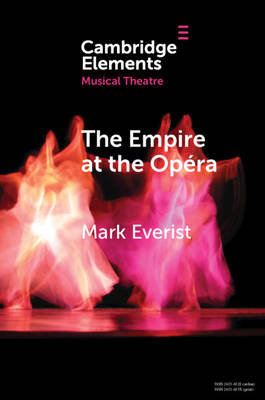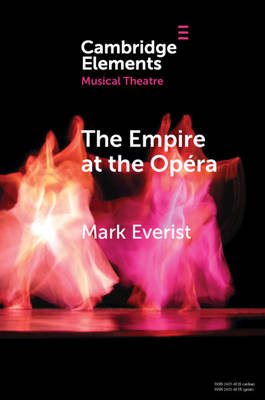
Je cadeautjes zeker op tijd in huis hebben voor de feestdagen? Kom langs in onze winkels en vind het perfecte geschenk!
- Afhalen na 1 uur in een winkel met voorraad
- Gratis thuislevering in België vanaf € 30
- Ruim aanbod met 7 miljoen producten
Je cadeautjes zeker op tijd in huis hebben voor de feestdagen? Kom langs in onze winkels en vind het perfecte geschenk!
- Afhalen na 1 uur in een winkel met voorraad
- Gratis thuislevering in België vanaf € 30
- Ruim aanbod met 7 miljoen producten
Zoeken
€ 26,95
+ 53 punten
Omschrijving
Although nineteenth-century legislation had tried to ensure a precise separation between genre and institution for Parisian music in the theatre, it had inadvertently laid out a field on which the politics of genre could be played out as agents and actors of all types deployed various forms of artistic power. During the Second Empire, from 1854 until 1870, the state took over day-to-day control of the Opéra in ways that were without precedent. Every element of the Opéra's activity was subjugated to the exigency of Empire; the selection or artists, works and more general questions of artistic policy were handed over to politicians. The Opéra effectively became a branch of government. The result was a stagnation of the Opéra's repertory, and beneficiaries were the composers of larger-scale works for competing organisations: the Opéra Comique and the Théâtre Lyrique.
Specificaties
Betrokkenen
- Auteur(s):
- Uitgeverij:
Inhoud
- Aantal bladzijden:
- 78
- Taal:
- Engels
- Reeks:
Eigenschappen
- Productcode (EAN):
- 9781108829380
- Verschijningsdatum:
- 21/01/2021
- Uitvoering:
- Paperback
- Formaat:
- Trade paperback (VS)
- Afmetingen:
- 152 mm x 229 mm
- Gewicht:
- 117 g

Alleen bij Standaard Boekhandel
+ 53 punten op je klantenkaart van Standaard Boekhandel
Beoordelingen
We publiceren alleen reviews die voldoen aan de voorwaarden voor reviews. Bekijk onze voorwaarden voor reviews.









